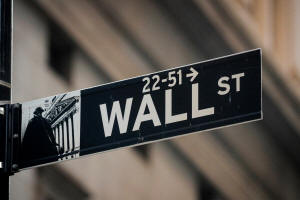Analysis: As stocks soar, government shutdown looms amid pandemic
 Send a link to a friend
Send a link to a friend
 [December 04, 2020]
By Saqib Iqbal Ahmed [December 04, 2020]
By Saqib Iqbal Ahmed
NEW YORK (Reuters) - Investors worried
about whether a looming government shutdown could slow U.S. stocks'
recent surge can take comfort in history: markets have tended to shrug
off shutdowns despite their potentially nasty economic impact.
Since 1984, the S&P 500 has averaged a 1.3% gain during government
shutdowns, having edged lower in only two out of the last 10 instances.
The most recent shutdown, which lasted for five weeks, shaved 0.1% and
0.2% from real U.S. gross domestic product in the fourth quarter of 2018
and the first quarter of 2019, respectively, according to the
Congressional Budget Office.
It did not do much to deter stocks, however, with the S&P 500 rising
more than 9% during that period.
The S&P 500 and Nasdaq composite indexes touched all-time highs on
Thursday as investors looked past bleak economic data, while remaining
focused on a COVID-19 vaccine.

"Markets understand that artificial deadlines created by governments got
designed as negotiating tools," said Jamie Cox, managing partner for
Harris Financial Group.
"It is nothing more than a pause ... and most of the time it's resolved
in very short order," he said.
More may be at stake this time, spurring lawmakers to act more
decisively while also potentially boosting investor concerns as
government funding for nearly all federal agencies expires on Dec. 11.
Failure by the Democratic-controlled House and Republican-controlled
Senate to pass a bill on how to allocate around $1.4 trillion to be
spent by Sept. 30, 2021, when the fiscal year ends, could have dire
consequences.
[to top of second column]
|

A Wall St. sign is seen near the New York Stock Exchange (NYSE) in
the financial district in New York, U.S., November 24, 2020.
REUTERS/Brendan McDermid

Some healthcare operations could be short-staffed or interrupted at
a time when U.S. COVID-19 cases have been spiking, with more than
270,000 fatalities so far.
The massive spending bill could also be the vehicle for providing
billions of dollars to state and local governments to help them
handle coronavirus vaccines that are on track to be available in
coming weeks and months.
With the economy reeling from COVID-19 and high unemployment, "there
will be tremendous political pressure ... to hammer out a deal,"
said Paresh Upadhyaya, portfolio manager for Amundi Pioneer Asset
Management in Boston.
So far, the threat of a sharp slowdown in government spending has
done little to dull investors' appetite for stocks, given the
breakthroughs in a vaccine against COVID-19, hopes for more stimulus
and a wave of stronger-than-expected corporate earnings.
"The market's expectation is that we have seen this movie so many
times and it always has a happy ending," he said.
(Reporting by Saqib Iqbal Ahmed; Editing by Ira Iosebashvili and
Richard Chang)
[© 2020 Thomson Reuters. All rights
reserved.] Copyright 2020 Reuters. All rights reserved. This material may not be published,
broadcast, rewritten or redistributed.
Thompson Reuters is solely responsible for this content.
 |